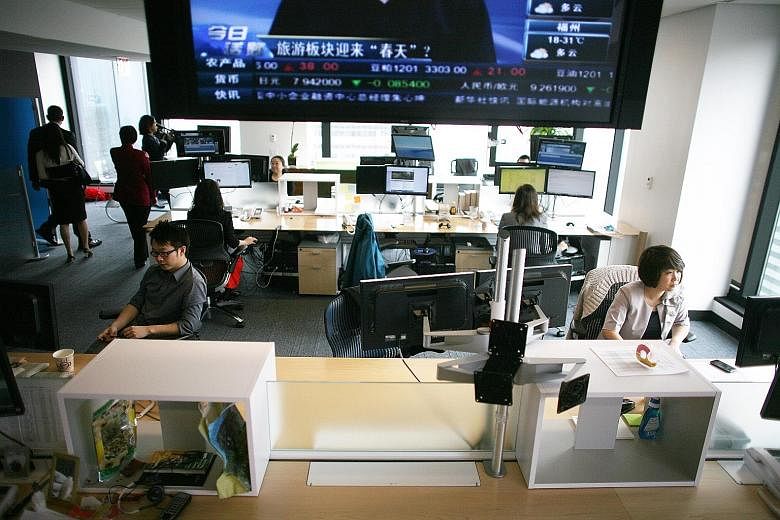BEIJING/WASHINGTON • China has denounced the US move to designate its five foremost news agencies as foreign government functionaries that are subject to the same rules as diplomats stationed in the United States, saying it has the right to retaliate.
The news agencies are Xinhua, CGTN or China Global Television Network, China Radio, China Daily and The People's Daily.
"We urge the US to discard its ideological prejudice and Cold War zero-sum-game mentality, and stop ill-advised measures that undermine bilateral trust and cooperation," ministry spokesman Geng Shuang told reporters yesterday.
He said the official media outlets helped promote understanding and that Beijing would "reserve the right" to retaliate.
For years, the five agencies have operated as news organisations in the US, deploying scores of journalists to cover the major events of the day and to report back to their readers and viewers at home.
Now, the Trump administration has declared them not practitioners of journalism, but rather operatives of the Chinese state.
The decision - debated in Washington for years but never carried out, in part due to concerns over restricting press freedom - comes at a time when the Trump administration has moved aggressively to fight what officials describe as extensive Chinese influence and intelligence operations in the US.
"China has long masked intelligence operations with journalistic credentials," said George Washington University law professor Jonathan Turley, echoing a suspicion held in national security circles. "The danger is China could reciprocate against our journalists."
Prof Turley's comment proved prescient. Following the decision, Beijing yesterday said that it had revoked the press credentials of three journalists from the Wall Street Journal over a column with a "racist" headline.
The immediate impact of the new status on the five news outlets remained unclear. The change would, among other things, require them to declare their US real estate holdings and seek approval for any new purchases.
One US administration official said that the agencies were included because they were "substantially owned and effectively controlled" by China's government.
The move reflected long-simmering frustration over the forbearance shown to Chinese official media in the US, despite evidence that the organisations serve as a front for intelligence agencies, the official added.
The news outlets did not issue official responses to the US decision, but Mr Hu Xijin, the outspoken editor-in-chief of Global Times, a newspaper under The People's Daily, tweeted: "Washington shouldn't go too far in cracking down on Chinese media, or Beijing will take countermoves. Many American media organisations have branches in China, Washington is obviously increasing their risk."
Russia faced a similar situation in 2017, when Washington required Kremlin-backed news outlet RT to register in the US as a foreign agent. Moscow retaliated by labelling nine US government-backed news outlets as foreign agents, CNN reported at the time.
Unlike Russia's information campaigns in the US, which have been artfully tailored to sow distrust in the US government and the democratic system, China's media efforts in the US are more likely to extol Beijing's achievements.
"I don't see any evidence that they are doing anything nefarious that would warrant this response," said Ms Maria Repnikova, an assistant professor at Georgia State University and the author of Media Politics In China: Improvising Power Under Authoritarianism.
China Daily regularly publishes advertising supplements in newspapers around the country, including The New York Times.
However, some experts on China say China Daily pushes insidious propaganda onto foreign readers, especially in its attempts to whitewash vast human rights abuses against Uighurs, Tibetans and other ethnic minorities.
BLOOMBERG, NYTIMES

